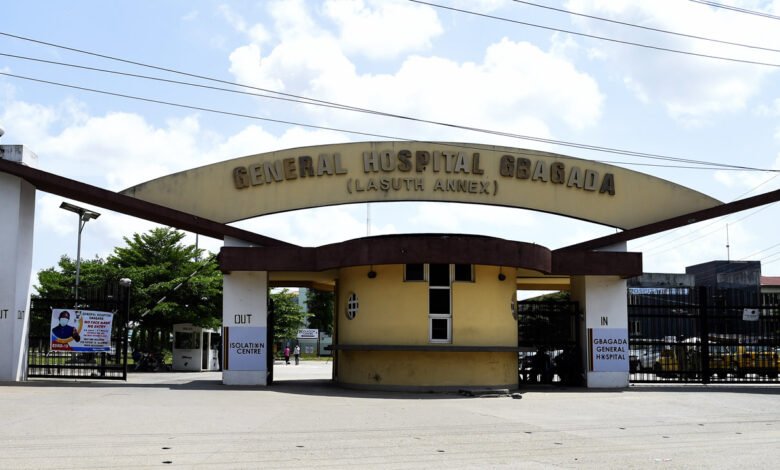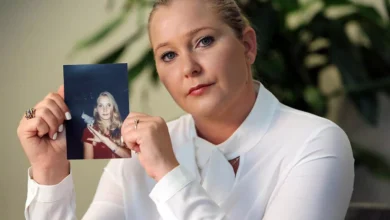Medical Negligence and Alleged Baby Swapping: A Grieving Family’s Quest for Justice at Gbagada General Hospital

Source: http://guardian.ng
A devastating incident at Gbagada General Hospital, Lagos, involving allegations of medical negligence and baby swapping, has left a family heartbroken and sparked widespread outrage. The case, shared on X (formerly Twitter), highlights critical issues within Nigeria’s public healthcare system and raises profound questions about accountability, professionalism, and ethics in medical care.
The Allegations: A Tragic Sequence of Events
The ordeal began on December 1, 2024, when a pregnant woman was admitted to Gbagada General Hospital after her amniotic sac broke. According to an account shared by her sister, who tweets under the handle @Aggie_lawlaah, the hospital staff delayed medical intervention, inducing labor only two days later on December 3. The baby, born struggling to breathe, was taken to the Neonatal Unit (NNU).
The family alleges that the hospital staff were dismissive and unprofessional throughout the process, failing to communicate adequately about the baby’s condition. Matters worsened on December 5, when they were informed of the infant’s passing. However, when the family went to claim the body, they discovered they were given the wrong child, leading to accusations of baby swapping.
The baby’s aunt described the experience as “gross negligence, lack of professionalism, and a complete disregard for human dignity.” She demanded accountability and the return of the actual baby, urging the public to support their call for justice. Other social media users also shared similar accounts of negligence at the same hospital, adding to the uproar.
Hospital’s Defense: Denial of Negligence and Baby Swapping
Dr. Olusegun Babafemi, the Medical Director of Gbagada General Hospital, has refuted the allegations. He stated that the hospital made every effort to save the baby, including resuscitative measures, and rejected claims of negligence. Addressing the baby-swapping accusations, Dr. Babafemi explained that the father had identified the baby immediately after the death, only for the family to later question the identity.
To resolve the confusion, the hospital has offered to sponsor a DNA test to confirm the baby’s identity. Dr. Babafemi emphasized the hospital’s track record of handling high-risk cases, including the care of quadruplets and premature babies, as evidence of its competence.
Public Reaction: A System Under Scrutiny
The incident has fueled widespread anger on social media, with many Nigerians expressing dissatisfaction with the state of public healthcare. Comments on the post reveal a deep mistrust of government hospitals, with some users sharing similar experiences of alleged negligence. Others lamented the lack of accountability in the healthcare system, with calls for stricter oversight and reforms.
One user, @iam_Olanmanuel, recounted losing his two-day-old nephew due to alleged negligence at the same hospital, while another user, @Comeback_snarky, criticized the disregard for medical ethics and standards of care in public hospitals.
These reactions underscore systemic challenges within Nigeria’s healthcare sector, including poor funding, inadequate training, and weak enforcement of medical ethics.
Key Issues at Stake
1. Medical Negligence
The allegations of delayed intervention and inadequate care point to potential lapses in standard medical practices. If proven, this would reflect a failure in adhering to the principles of patient safety and dignity.
2. Baby Identification and Record-keeping
The mix-up in the baby’s identity raises serious concerns about hospital protocols for patient record-keeping and identification. Such lapses not only erode trust but also expose families to avoidable trauma.
3. Public Confidence in Healthcare
The incident highlights a broader distrust of public healthcare institutions. Repeated accounts of negligence and poor service delivery reinforce perceptions of government hospitals as unsafe and unreliable.
The Way Forward: Demanding Accountability
For the Family
- A DNA test must be expedited to resolve the baby-swapping allegation and provide closure.
- An independent investigation should be conducted to ascertain whether medical negligence occurred and determine accountability.
For the Hospital
- Comprehensive reviews of patient management and record-keeping protocols are necessary to prevent similar incidents in the future.
- Training programs should be implemented to improve staff communication and professionalism.
For the Healthcare System
- Greater investment in public hospitals is essential to address resource constraints and improve service delivery.
- Stronger oversight mechanisms should be established to enforce medical ethics and penalize lapses in care.
Conclusion
The heartbreaking case at Gbagada General Hospital is a stark reminder of the need for transparency, professionalism, and accountability in healthcare. For the grieving family, justice involves not only uncovering the truth but also ensuring that no other family endures similar trauma. This incident also serves as a call to action for stakeholders in Nigeria’s healthcare sector to address systemic failures and rebuild public trust.
Read more about this story here: https://childreninfobank.com/safebank/controversy-trails-alleged-baby-swap-negligence-at-lagos-hospital/
Source of image: http://guardian.ng





